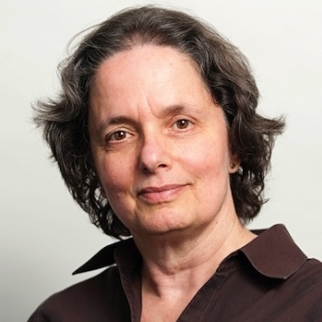Dozens of congregants at Temple Israel of Hollywood gathered in the synagogue’s aging all-purpose room not long ago to talk about a major expansion of their 79-year-old institution. One by one, members spoke excitedly of overhauling the shul to make room for the future — a new chapel, a new teen rec room, a bigger school.
Then Ruth Nussbaum, 94, raised her hand. “Remember,” she said, “that there are many memories in what we have now.” She spoke of the simchas celebrated and yarzheit prayers said in the current small chapel, which could soon be demolished. “These memories are important,” she said.
As clear-minded and direct today as she was in her youth, Nussbaum these days embodies the history of an era that is quickly slipping away. She is the widow of Rabbi Max Nussbaum, who led this same congregation from 1942 until his death in 1974.
Immigrants from Berlin, they brought to Los Angeles a connection to the European tragedy still in progress. They shared with their congregation a Zionist passion from the first, and they fought tirelessly for the civil rights of all, reaching out to political leaders — from Golda Meier to Lyndon Johnson — and Hollywood’s shining lights.
Nussbaum was a full participant with her husband, and Shabbat dinners at their house regularly featured the likes of Leo Baeck, Mordecai Kaplan and Martin Buber. The temple’s sanctuary, dedicated in 1948, is named for her as well as her husband, a rarity for a rabbi’s wife. She continues to serve the cause she most believes in — sitting at a folding table signing up registrants last month to vote in the upcoming World Zionist Congress elections; speaking at a Reform Zionist think tank in Malibu last January.
On Dec. 16, Nussbaum will stand up at Shabbat services at Temple Israel to receive the Roland Gittelsohn Award for Achievement in Zionism, created this year by the Association of Reform Zionists of America (ARZA). In addition, Temple Israel received a Congregational ARZA Roland Gittelsohn Award at the recent Union for Reform Judaism Biennial.
Her earliest Zionist activities began in earnest after her first trip to Palestine in 1935 to visit her sister, who’d made aliyah, and she has traveled to Israel almost annually until recently, when age began to slow her down just a little. She was in San Francisco when ARZA was created at the Union of American Hebrew Congregations’ convention in 1977, and she spoke before the 1,000 members present, helping to convince the many doubters that active Zionism remained crucial for Reform Jews.
“Ruth played a pivotal role in helping to reshape the Reform view of Zionism,” said Rabbi Stanley Davids, national president of ARZA, who will present the award. “She sees the need for pluralism and democracy in Israel; to her these are Reform Jewish values. To her, Jewish nationalism is a seamless and natural aspect of Reform Jewish identity.”
“She was an extraordinary leader by virtue of her deep commitment to Israel,” said Rabbi Lennard R. Thal, senior vice president for the Union of Reform Judaism.
Nussbaum, though, claims to think of herself only in terms of practical commitment. She wants American Jews to recognize the need to support progressive Judaism in Israel, and she wants to bring a spiritual life to secular Jews there who feel disenfranchised by the Orthodox.
“We want to convince those who are at the fringes to join us.” she said in her distinctive German-tinged English, which carries vestiges of her early years in Berlin. “We want the Israeli Jews to have the same opportunities that we have.”
Nussbaum remains the old-world, intellectual she was raised to become, and she is also a proud matriarch with two children; a daughter-in-law; four grandchildren; two grandchildren-in-law; and two great-grandchildren.
In Berlin, Rabbi Nussbaum was a colleague of Baeck, and both Nussbaums stayed in Germany until 1940 to serve the Jewish population there for as long as they could. When it came time to flee, they came to America, sponsored by Stephen S. Wise, transported as refugees on a crowded boat to New York.
First stop for the Nussbaums was Muskogee, Okla., serving a congregation that had helped sponsor their escape from the Nazis. Two years later, the family moved to Hollywood, where Rabbi Nussbaum made it a condition of his hiring that he could preach Zionism from the pulpit.
“They said, ‘OK,'” Nussbaum said with a tone of irony in her voice. The temple’s commitment to a Jewish state would strengthen later, in the wake of the Nussbaums’ passion.
The pair helped Temple Israel grow from about 300 families to 1,000 and oversaw the building of the congregation’s current home on Hollywood Boulevard. Today, Ruth Nussbaum lives in a garden apartment in the San Fernando Valley, close to her family and surrounded by friends of every generation.
She remains close to John Rosove, who has just begun his 18th year as senior rabbi of Temple Israel of Hollywood; she recently edited a new machzor for the temple, which Rosove compiled.
“She is a conscience for us all,” Rosove said.






















 More news and opinions than at a Shabbat dinner, right in your inbox.
More news and opinions than at a Shabbat dinner, right in your inbox.